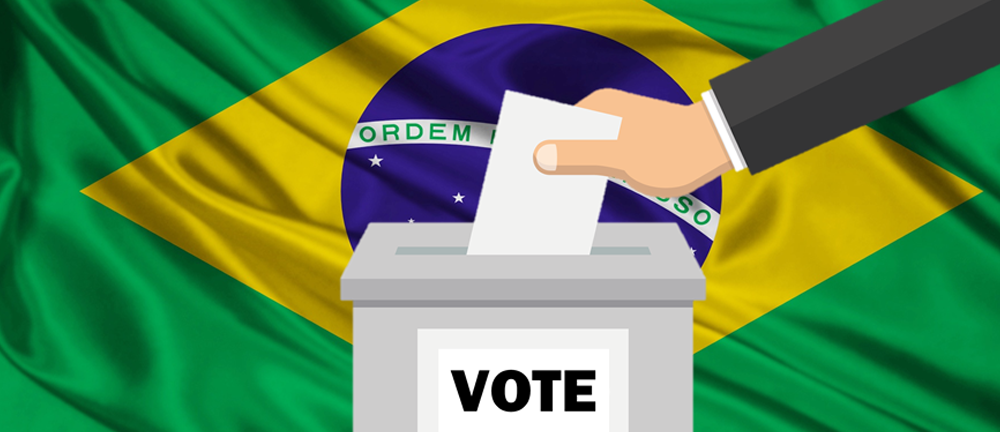As many people know, Brazil will face its first round of federal elections on 2 October, after being ruled by the far right for four years. The event is characterised by a huge polarisation that is widely discussed by people and poorly discussed by the candidates (at least those who were chosen to appear on television for the debates).
Brazil has been crushed by liberals for about two decades after the civil-military dictatorship, sometimes ruled by left-liberal policies, sometimes by right-wing ones, but never abandoning class conciliation and the protection of the bourgeoisie.
However, this year the radical left decided to put forward their own candidates: Sofia Manzano of the Brazilian Communist Party and Léo Péricles of Popular Unity for Socialism. They are travelling to every state in Brazil, discussing such themes as a thirty-hour working week, the decriminalisation of abortion, the revoking of counter-reforms from the previous right-wing governments, the expansion of the railway network, the demarcation of indigenous lands, investing in different sources of energy, and agrarian reform; the latter is even discussed by the Workers’ Party candidate, the former president Luiz Inácio (Lula) da Silva.
Up to today Lula is in first place in surveys as a pre-candidate (as his candidature was not yet official when those surveys took place). Besides his coalition programme with other reformist parties he has brought some vital points to his campaign, such as the national sovereignty of Brazil, job creation, and many proposals about environmental preservation.
Unfortunately, Lula has not given up his well-known policy of class conciliation and decided to have Geraldo Alckmin, a liberal who was governor of the state of São Paulo and is known for his repressive and truculent police, as his vice-president. But at this point nobody was expecting that he would support class struggle or provide conditions for doing so.
The serving president, Jair Bolsonaro of the Liberal Party, keeps himself aligned with the evangelical and ruralist wings, which gives him some strength. He also denies, in every interview, that Brazil is in crisis and all the devastation caused by his liberal government, destroying the environment and people’s lives. Nevertheless he enforces the idea of arming the population as a self-defence method, trivialises all the deaths from the covid pandemic, and discredits the vaccines.
Since the beginning of his government he keeps bringing up the threat of a military coup, and putting questions about the credibility of the Brazilian voting system, which has already been proved trustworthy—exactly like Donald Trump in the United States.
The electoral surveys after the candidatures are confirmed by the superior electoral court will be announced on 2 September.
Conector Agribusiness is a huge issue in Brazil. In the name of profits and of their god, the Market, they have been promoting the destruction of every biome in Brazil, and also the destruction of indigenous lives, day by day. As if this was not enough, they have been promoting the country’s deindustrialisation and poor working conditions and wages (being known for using slave-like working conditions), with the exporting of raw grain, to be processed in other countries, so avoiding the payment of taxes.
Agribusiness and the financial market rule the political situation in Brazil, and clearly all their profits don’t go to the working class in the form of services provided by taxes but are kept by them, with the crumbs given to their lackeys in the government as an exchange, although the majority of candidates do not want to break up the relationship with them.
Since the coup against Dilma Rousseff of the Workers’ Party in 2016 the country has been in crisis, with the quality of life decreasing and 33 million people hungry, though Bolsonaro denies the hunger and keeps saying that agrobusiness is the shining star of Brazil. At the same time, while people are queuing for bones in order not to starve, huge propaganda is put out by big television companies about “the Agro” feeding the world!
These elections are not only for the presidency but also for the governors of all twenty-six Brazilian states, the Senate, and the Congress. But, because many people are traumatised from these last years of rule by a neo-fascist president, it gives the impression that the emphasis is mostly on the presidential campaign, even though several candidates are bringing up the discussions of their parties’ agenda, but concentrating on their own states.






